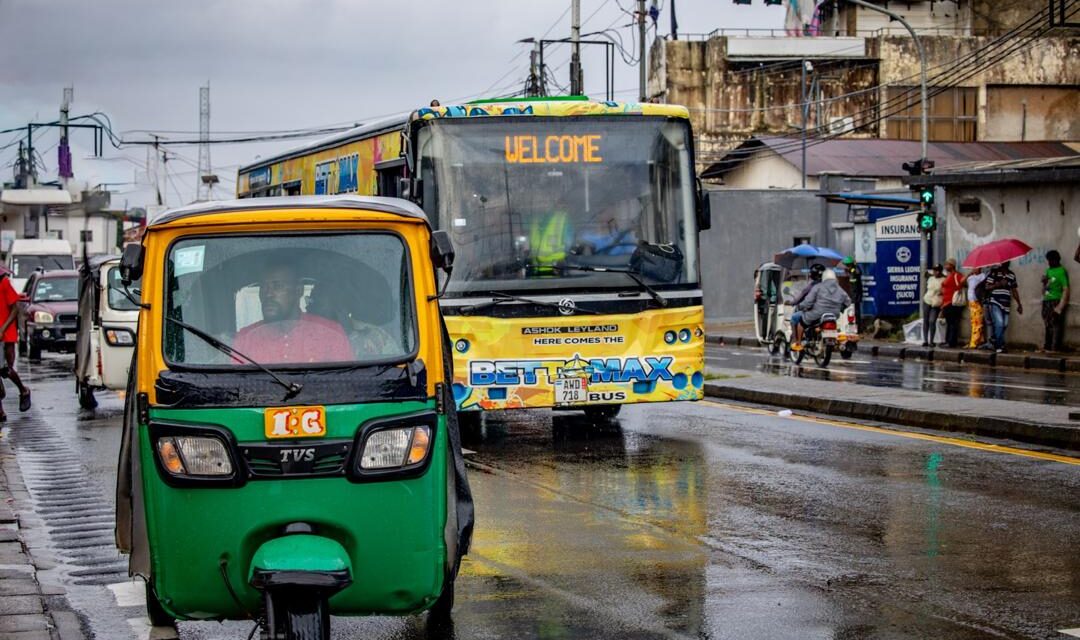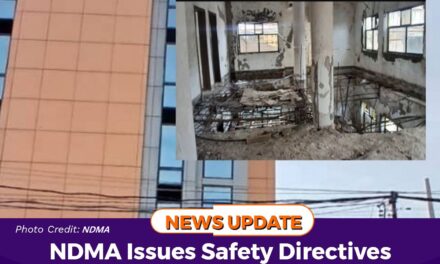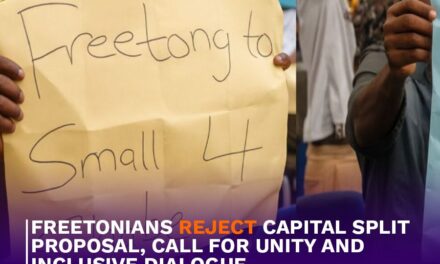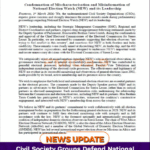By Davida Spaine-Solomon
Freetown, 18th August 2025- In January 2024, the Ministry of Transport and Aviation announced a sweeping directive: commercial tricycles locally known as kehkehs, along with motorbikes (okadas), pushcarts (omorlankays) and other unauthorized public transport would be barred from major Freetown roads during the day. The move, officials said, was intended to improve road safety, ease gridlock, and restore order on the city’s busiest corridors.
But nearly a year later, the ban survives mostly on paper. Kehkehs still ply the restricted routes daily not due to any policy reversal, but, riders say, because of an entrenched system of informal payments to traffic police known as “booking.”
“I pay 100 Leones a day to ride in those areas,” said kehkeh rider Dauda Kallon. “I know I’m not supposed to be there. But that’s where the passengers are. People don’t want to wait for buses. If I want to make money, I have to book.”
The Rules and the Reality- The official directive, dated January 29, 2024, prohibits kehkehs, okadas, omorlankays, and unauthorized public transport from entering designated corridors between 6:00 a.m. and 10:00 p.m. Loading and off-loading are permitted only between 10:00 p.m. and 5:00 a.m. Violators risk having their vehicles impounded at their own expense.
Restricted zones include: Western Corridor: Lumley, Wilkinson Road, Main Motor Road, Sanders Street, Siaka Stevens Street, Gloucester Street, Wallace Johnson Street, Percival Street.
Eastern Corridor: Calabar Town, Bai Bureh Road, Kissy Road, Sani Abacha Street, Wilberforce Street, Rawdon Street, and again Siaka Stevens Street.
Yet riders and commuters say enforcement is patchy and often negotiable.
The “Booking” System- Many riders describe a daily ritual where officers at key checkpoints, including Lumley Police Station, collect payments either directly or through intermediaries.
“You’ll see police around Lumley just watching number plates,” said kehkeh operator Amara Kamara. “If your kehkeh isn’t on the list, they stop you. Sometimes they impound it. Then you have to pay even more to get it back.”
Female rider Lydia, known on the streets as “Mummyo,” called it harassment disguised as law enforcement.
“After paying just to ride through, we’re still treated like criminals. But what choice do we have? We’re not rich. We have families to feed,” she said.
During one visit to the Lumley checkpoint, I observed riders hand money to street boys selling mobile recharge vouchers, who then quietly passed the cash to nearby police officers a transaction masked as a routine purchase. When approached for comment, an officer on duty brushed off the allegations: “We’re just doing our job.”
According to Hindolo Shiaka, Project Coordinator for the Sierra Leone Integrated and Resilient Urban Mobility Project (IRUMP), the directive was part of a larger public transport reform plan one that relied heavily on deploying a fleet of buses along the corridors.
The goal was to have at least 150 buses. But due to budget constraints, only 50 were procured.
“As a result, the buses couldn’t meet commuter demand,” Shiaka said. “Because of that, the ministry had to relax enforcement. The directive still stands, but full implementation is on hold until we have adequate resources.”
Acting Director General of the Sierra Leone Public Transport Authority (SLPTA), Isaac Ken-Green, confirmed the restrictions remain in place but admitted that enforcement is “very weak.”
“I cannot confirm the booking allegations because I haven’t seen it myself,” he said. “But I have heard that it is going on. I intend to engage the enforcement institutions the Sierra Leone Police and the Sierra Leone Road Safety Authority for a collaborative action plan to deter breaches.”
Ken-Green also outlined ongoing modernization efforts, including digital ticketing through handheld POS machines and the planned introduction of Near Field Communication (NFC) cards by September 2025, allowing passengers to tap to pay. He revealed that out of the 50 buses procured, 35 are currently in service, with the rest undergoing repairs for minor defects or accident damage.
A Law in Theory, Not in Practice- For many commuters, the situation raises a deeper question: do laws apply equally to all?
“They said no kehkehs between 6 a.m. and 10 p.m.,” said a frustrated passenger at Siaka Stevens Street. “But every morning, I see them and the police do nothing”.
The booking system, critics say, rewards those who can pay while punishing those who cannot. What began as a road safety measure has become another example of how informal systems can override formal laws.
Until enforcement is consistent, transparent, and free from bribery, the kehkeh ban will remain more illusion than reality a directive on paper, undone by the daily dance of compromise, survival and unspoken corruption.









